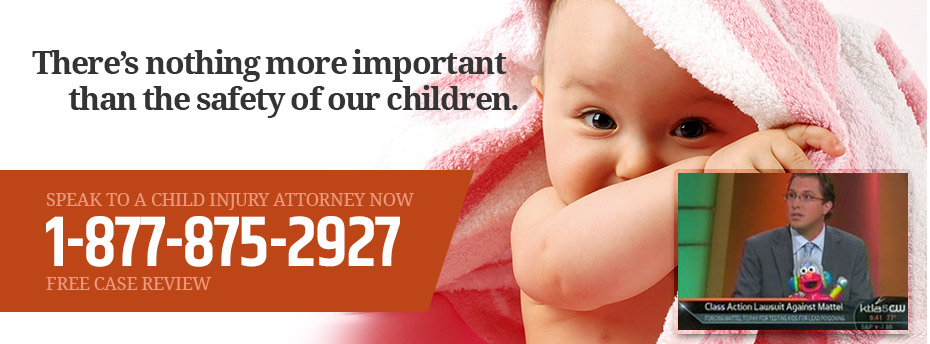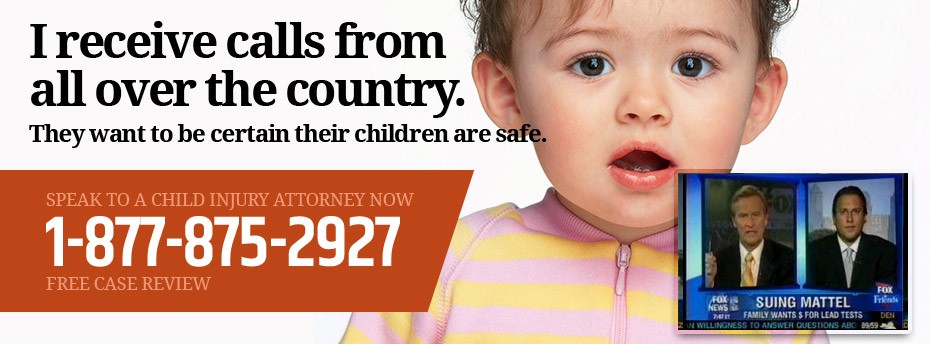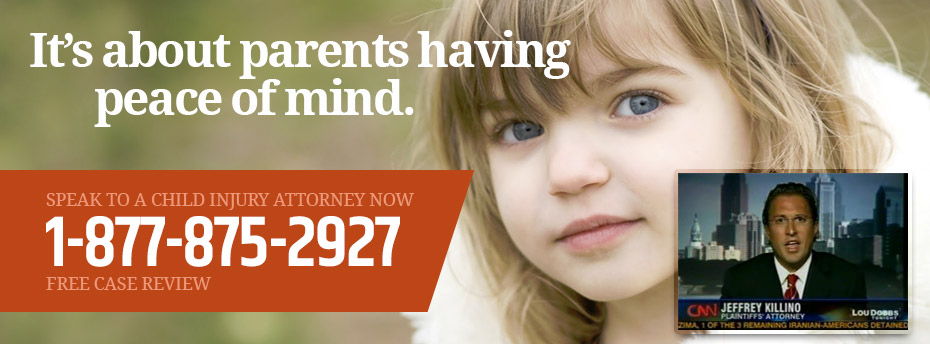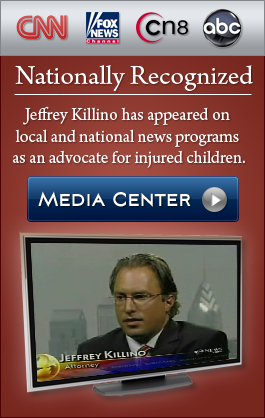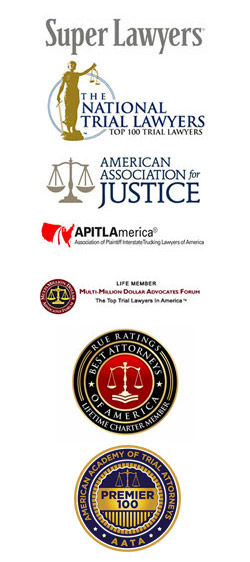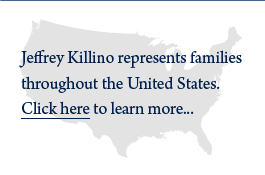Every day, thousands of products designed for use by children are purchased by parents across the country. A great deal of trust is involved in such purchases, as parents are truly forced to put blind faith in the designers and manufacturers of these products to place nothing but safe and non-defective products on the market. Yet, so often, defective products find their way onto retailers’ shelves and into consumer’s homes to be used by or for these consumers’ children.

What can you do if you purchase a product that is meant for a child’s use and your child is injured by that product because it was made or designed in a way that made it unsafe for your child’s use?
There are several avenues of recourse that a parent of an injured child can take in such circumstances. An experienced child-injury or child defective-products lawyer can advise you of the options available to you under the particular circumstances of your case. Nationally-recognized and highly experienced child-injury attorney Jeff Killino and his team of child-injury lawyers, child-accident lawyers, toy-accident lawyers, defective car-seat lawyers, child brain-injury lawyers, defective children’s products lawyers, and wrongful-death lawyers will fight for the justice to which you and your child are entitled as a result of your child’s injury or death.
Recalled Defective Children’s Products
The Consumer Products Safety Commission (CPSC) regulates products that are manufactured for use by children, including toys and items such as car-seats, strollers, and cribs. When a defect in one of these products is discovered, either through reports of injuries or otherwise, the CPSC may order a recall of the product and warn parents to discontinue using it until the defect can be remedied. In some cases, a recall may be voluntarily made by a manufacturer without an order by the CPSC.
In June 2014, for instance, the CPSC ordered the recall of phil&teds Travel System 26 (TS26) infant car-seat adaptors, which are used to attach an infant car seat to a stroller. The adaptors, which consist of two pieces of black plastic that connect a car seat to a stroller, were recalled because the plastic was reported to crack and break during use and cause a fall hazard to infants.
Legal Liability for Injuries Caused by Defective Children’s Products
What should you do if you have a recalled child’s product? In all cases, you should cease using it and follow the CPSC’s or manufacturer’s instructions regarding return of the product or arrangements for correction of the defect.
But, what if your child has already been injured or killed by a product, even before it was recalled? If your child has been injured by any product, and you suspect that the injury was caused by a defect in that product, you may be able to obtain compensation for your child’s injuries in a court of law through the institution of a product-liability suit or a wrongful-death action.
This is true in the case of recalled products and products that were never recalled. The recall of a defective product is not required for the institution of a personal-injury action against those responsible for the product defect and your child’s injuries.
Product- liability actions may be brought against the manufacturer and others in the chain of a product’s distribution to recover compensation for injuries that were caused by the product’s defect. The laws of most states allow for the institution of such actions under some form of the Uniform Product Liability Act that has been enacted in the state. Thus, in most states, an action for product liability may be brought as an action for breach of warranty, negligence, or strict liability.
When the action is intended to seek compensation for personal injuries that have been caused by a defect in a product, the product-liability action is usually brought as a strict liability claim. Strict liability claims are particularly attractive to plaintiffs, as they allow for a finding of liability against a manufacturer and others without the need for proving that such defendants knew about the defect before the product was sold or that they were negligent in allowing the defect to occur or in releasing the product to the public.
The law of products liability allows for a defendant’s strict liability because it holds manufacturers and others in the chain of a product’s distribution to a high duty of care toward those who will purchase or use their products. The duty of care owed by a manufacturer to users of its products is to design and manufacture the product so that it is reasonably safe for a consumer’s use. Such actions can be brought under a manufacturing or design defect theory, or under a failure to warn theory, which is based on the idea that a product can be made unreasonably dangerous for someone’s use if it is not accompanied by adequate warnings or instructions.
Wrongful death actions can also be brought against these parties if the defect in a product is the cause of a child’s death. These actions are brought by the survivor’s of the child (usually, the family members) for damages the family members suffer as a result of the child’s death.
Obtain Experienced and Compassionate Assistance from Child-injury Attorney Jeff Killino
Child-injury attorney Jeff Killino is dedicated to achieving justice for children injured through someone’s negligence or a defective product. If your child has been injured or killed in an accident caused by a defective car seat adaptor or other children’s product, or as a result of someone’s negligence, attorney Killino and his team of child-injury attorneys, child-accident attorneys, toy-accident attorneys, defective car-seat attorneys, child brain-injury attorneys, defective children’s products attorneys, and wrongful-death attorneys will provide you with expert assistance in seeking compensation from those responsible for your child’s injuries or death.
